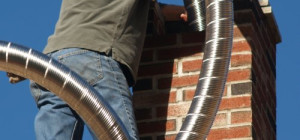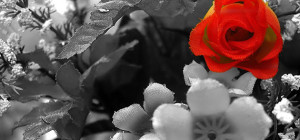 Being new to hunting presents a perfect opportunity to take into account all the years of knowledge gained by season hunters and apply them in your adventure in the best way. It is worth remembering that preparation plays a massive role in hunting. While different hunts necessitate different equipment, there are a few hunting equipments that you should never leave home without.
Being new to hunting presents a perfect opportunity to take into account all the years of knowledge gained by season hunters and apply them in your adventure in the best way. It is worth remembering that preparation plays a massive role in hunting. While different hunts necessitate different equipment, there are a few hunting equipments that you should never leave home without.
Before the hunt: Hunting clothing
Good hunting wear can make your hunt smooth. When it comes to hunting, Weather becomes a severe risk to hunters. You need good gear to protect your body from extreme exposure for a long duration. Quality rain gear prevents moisture from entering the body and prevents moisture produced by sweat from being trapped through proper ventilation.
But the weather is the opposite if you are hunting in a desert or semi-desert area like Arizona. Such extreme weather can be tiring and boring. So, before we look at hunting clothing. We have an exciting segway for beginners of Fun Things Hunters Can Do When Bored of Hunting.
- Base layer clothing: Another excellent way to manage moisture while hunting is to wear base layers. Base layers wick sweat from the body, keeping your skin dry.
Camouflage jackets and pants: Hunting entails stalking your prey over long distances in a natural setting. Hunting entails concealing yourself to avoid arousing suspicion. Natural-looking camouflage jackets and pants are highly effective at hiding your presence.
Socks and boots: Similar to your base layer, good hunting Socks will control excess moisture, protect and warm you, and prevent blisters during your hunt. A quick hack here is to avoid cotton fabrics.
To safely walk through muddy, rocky, and branch-filled rough terrain, one thing critical for every hunter is the proper footwear. Your boots should also help to mask your natural scent.
A quick hack here is to get one size up from your regular street shoe so you can wear several wool socks and still have room to wiggle your toes.
During the Hunt: Hunting Tools:
These cover a variety of types of equipment that you will need in your hunt.
- Weapon: Weapon selection and knowing how to use them can mean the difference between a clean and inhumane killing. Choose a weapon for which you can train and continue to afford ammunition. Learn how to handle safely, transport, and clean your weapon. Consider it an extension of yourself.
- There is much debate about the best hunting weapon for a beginner hunter. While bow hunting is an addictive activity, it requires time to learn and practice to become proficient with a bow. You must know to select the right arrows for hunting that are long, straight, and stiff enough to fly successfully from your bow.
- Knife: When it comes to hunting, a good knife can serve as a multi-purpose tool whether you are cleaning your kill, cutting a rope or tree branches, or notching hunting tags. Now choosing a knife can be tricky. You have folding knives, multi-purpose knives with a screwdriver and saw, etc. Still, most hunters prefer to carry knives with replaceable blades because of their lightweight, extraordinarily sharp edges, which do not require sharpening.
- Scope: There are varieties you can choose from regarding hunting scope. The safe option is to avoid going ahead and getting the expensive one. Instead, go for an optic that will allow your rifle to be used at the long-range possible while still allowing you to confirm a 100m zero.
- Binoculars: Binoculars allow you to keep track of your target while on the move. Your rifle can hang behind your shoulder, allowing you to pause for a split second to see your prey before moving again.
- Masking scent: This is a spray that you spray on your clothes and boots to mask your scents. You can then decide whether to use an additional cover scent that matches your hunting environment, such as cedar, sage, or red fox urine. It is not necessary to apply masking scents directly to clothing.
After The Hunt: Claiming Your Hunt
After your successful hunt, you will need more equipment to carry your prize:
- Ropes: Once you have your weapons at ease and have found your kill, you will need to start processing the easiest way to drag or carry your hunt. For that, ropes are used to suspend an animal while its insides are removed and drag it to your car.
- Backpack: Hunting backpacks are a matter of personal preference. But when it comes to big hunts like deer, elk, or buck. A backpack can handle massive loads of meat. Choose hunting backpacks that remain light and agile with good storage space.
Let’s not forget some essentials
- Hunting license and permits: Remember to get your hunting licenses renewed. An excellent ethical Hunter abides by the rules because hunting is a privilege. Also, hunting laws are often revised, so get all the necessary permits and fees to ensure your hunt goes smoothly.
- Navigation devices: Hunting requires covering a large landscape. Therefore it is critical to know where you are, where you are going, and what terrain you may encounter along the way.
Many hunters now have GPS devices that make navigating simple and accessible. A safer option is to add an offline map application that can function without any network connection online.
- Emergency supplies: Food and water supplies, First aid supplies, lighters, flashlights, extra batteries, trash bags, fire making supplies are other essentials you will need to throw in your backpack to carry for your hunting expedition.
Conclusion
Hunting is an experience and a skill you develop over time. You will learn more about hunting in new terrains as you dig more into the hunting world.
Now, if you are after an exciting adventure to hunt in a desert climate, we have a piece just for you 4 Hunting Tips for Texas High Desert Mule Deer. Dive right in to explore this new world of desert hunting.







